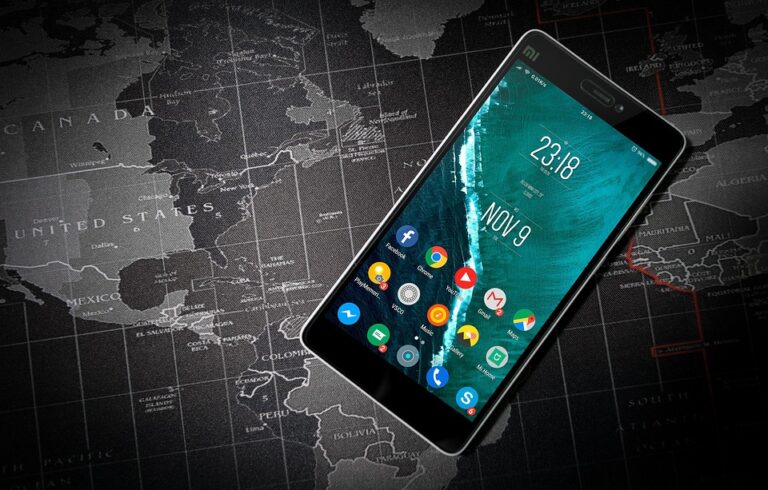Revolutionizing Connectivity: The Impact of Mobile Technology on Modern Society
Mobile technology has transformed the way we communicate, work, and entertain ourselves, fundamentally reshaping modern society. From smartphones to mobile applications, this technology has revolutionized connectivity while creating unprecedented opportunities and challenges across various sectors.
The Rise of Mobile Technology
Mobile technology refers to the range of devices and software that enable wireless communication between users. According to recent statistics, there are over 6 billion smartphone users worldwide as of 2023, a figure that underscores the pervasive nature of mobile technology (Statista, 2023). This remarkable growth in connectivity has not only made communication easier but also more instantaneous, impacting personal relationships, business operations, and consumer behavior.
Transforming Communication
One of the most significant shifts brought about by mobile technology is the way we communicate. Traditional methods like telephone calls and face-to-face interactions have been supplemented by instant messaging apps, social media platforms, and video conferencing tools. For example, apps like WhatsApp and Zoom have become household names, allowing people to connect instantly, regardless of geographical barriers. This change has implications that go beyond mere convenience; it has paved the way for remote work, enabling a global workforce that can collaborate from anywhere.
Data-Driven Decision Making
Mobile technology has empowered organizations to leverage data analytics to make informed decisions. Many businesses are utilizing mobile applications to gather real-time data from consumers, enabling personalized services and smarter marketing strategies. According to McKinsey & Company, businesses that effectively use data-driven insights can outperform their competitors by 20%. This insight not only enhances customer satisfaction but also improves operational efficiency, illustrating the pivotal role of mobile technology in modern commerce.
Social and Economic Impacts
Mobile technology has also led to numerous social and economic changes. With the rise of the gig economy, platforms like Uber and Airbnb have emerged, providing flexible job opportunities for millions globally. Access to mobile technology has democratized various services, allowing individuals to leverage their skills and resources at their convenience. In this sense, mobile technology has not only created jobs but has also fostered entrepreneurial spirit among individuals.
Bridging the Digital Divide
Despite its advantages, mobile technology does present challenges, including the widening digital divide. While urban areas often enjoy seamless access to high-speed internet and cutting-edge devices, rural communities frequently struggle to keep pace. According to the International Telecommunication Union (ITU), around 3.7 billion people worldwide are still offline, highlighting significant disparities in access to mobile technology. Bridging this divide is essential for fostering inclusive growth and ensuring that the benefits of mobile technology reach all corners of society.
The Future of Mobile Technology
Looking ahead, the potential of mobile technology continues to expand. Innovations such as 5G networks promise faster speeds and lower latency, paving the way for advancements in areas like augmented reality (AR) and the Internet of Things (IoT). This connectivity can transform industries ranging from healthcare to agriculture, allowing for real-time data sharing and smarter resource management.
Enhancing User Experience
Mobile technology will also likely evolve to enhance user experience. For instance, artificial intelligence is being integrated into mobile applications to provide personalized insights and recommendations, improving consumer engagement. As companies increasingly utilize AI-driven solutions, the landscape of consumer interaction will be dramatically altered.
Conclusion: Adapting to Change
In conclusion, mobile technology has revolutionized connectivity in countless ways, fundamentally altering how we communicate, work, and socialize. While it offers vast potential for economic growth and improved quality of life, it also presents challenges that must be addressed to ensure equitable access for all. With ongoing innovations on the horizon, the impact of mobile technology on modern society is set to deepen, making it imperative for individuals and businesses to adapt proactively.
For more insights on the effects of technology in society, check out related articles on buzzo.live.
Suggested Internal Links:
- The Future of Remote Work: How Technology is Changing Employment
- Understanding the Gig Economy: Opportunities and Challenges
Suggested External Links:
- Statista: Number of smartphone users worldwide from 2016 to 2023
- International Telecommunication Union: Measuring the Digital Divide
Images for Optimization:
- Image of smartphone usage in various contexts
- Alt Text: "Mobile Technology enabling connectivity in modern society"
- Image depicting remote work setup with mobile technology
- Alt Text: "Revolutionizing connectivity through mobile technology in remote work"
By leveraging mobile technology responsibly and equitably, we can harness its revolutionary capabilities for a more connected and inclusive society.


